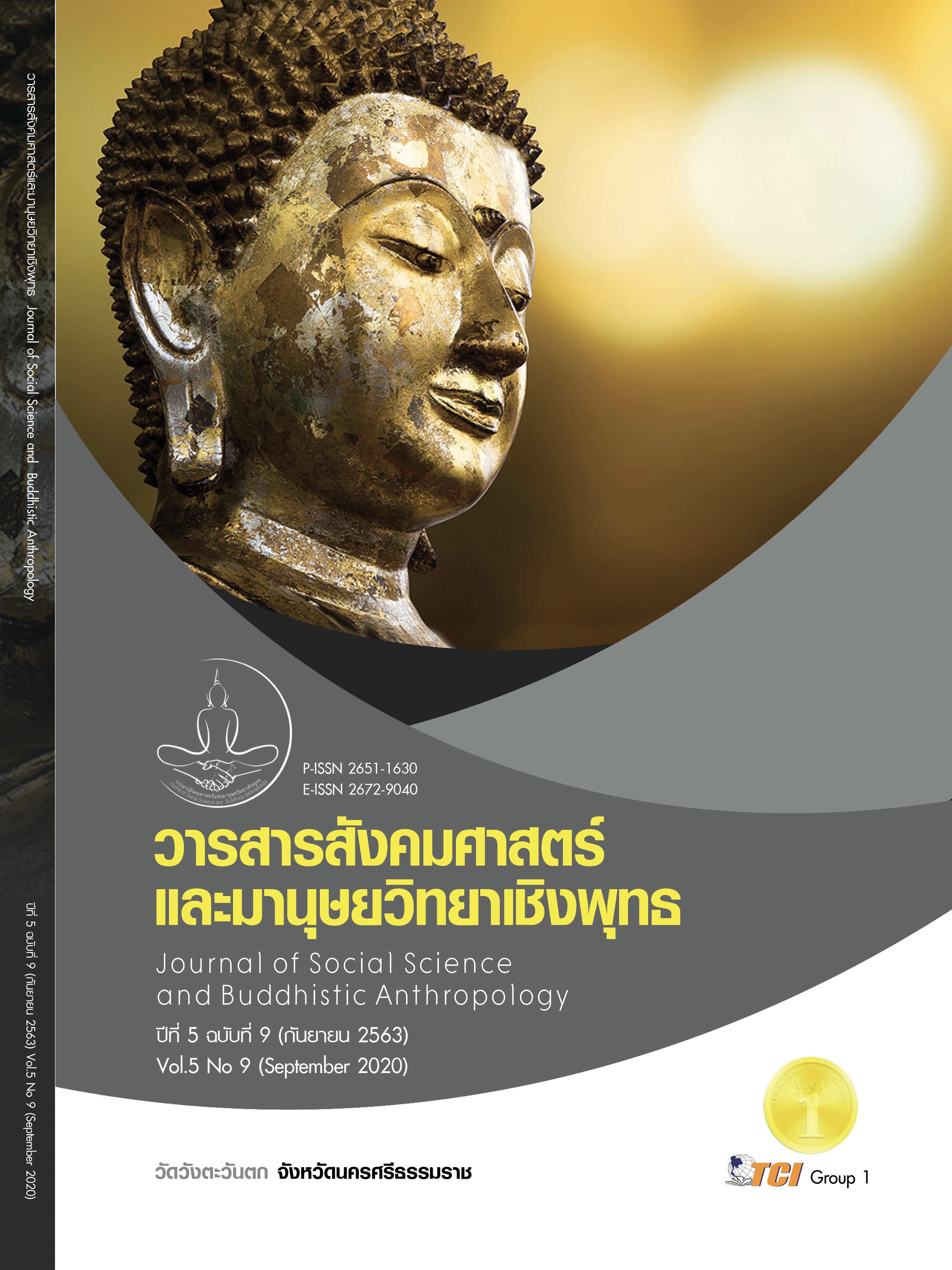COOPERATION OF COMMUNITY LEADERS AND DEVELOPMENT IN RANONG PROVINCE
Keywords:
Cooperation, Leaders Community, Evelopment, Ranong ProvinceAbstract
The objective of this research paper are 1) to study the cooperation status of community leaders and development in Ranong province, 2) to study cooperative factors and conditions in promoting cooperation of community leaders with development in Ranong province, and 3) to find cooperative guidelines of community leaders and development in Ranong province. This Is a qualitative research by using in-depth interviews and group discussions. The group of key informants is divided into 3 groups, consisting of Group 1 government officials, executive level and private sector executives in Ranong Province, 10 persons, Group 2 is the official community leaders. Informal, partnership, synergistic networks, Ranong network, 10 persons, and Group 3 stakeholders in Ranong, consisting of 3 groups, 10 persons, for a total of 30 people, and analyzed for data using qualitative research methods. The result of the research found that the qualities of cooperation of community leaders and development in Ranong province do not have to be the same. The virtue leaders of the Sappurisadhamma must know the reason, know the result, know about time, know the community, know the person and choose the right to use it. Development of Ranong province requires many factors. Start with knowledge and ability, differences between people, whole person, behavioral trends when motivated, dignity of humanity, including networks that connect people or organizations that voluntarily share knowledge. The community leaders in the development of the Ranong province should have the following guidelines: 1) Ask questions from knowledgeable people 2. Study from traditions and customs 3) Use of experience 4) Use inference methods 5) Use of induction 6) Use of scientific methods.
References
คงกฤษ ฉัตรมาลีรัตน์. (27 พฤศจิกายน 2562). ความร่วมมือของผู้นำชุมชนกับการพัฒนาจังหวัดระนอง. (กิตติวัตร ฝอยทอง, ผู้สัมภาษณ์)
จิตจำนงค์ กิติกีรติ. (2552). การพัฒนาชุมชน: การมีส่วนร่วมของประชาชนในงานพัฒนาชุมชน. กรุงเทพมหานคร: พัฒนาชุมชน.
จิราวัจน์ เจริญนิธิโภคิน. (15 ธันวาคม 2562). ความร่วมมือของผู้นำชุมชนกับการพัฒนาจังหวัดระนอง. (กิตติวัตร ฝอยทอง, ผู้สัมภาษณ์)
บุญชัย สมใจ. (15 ตุลาคม 2562). ความร่วมมือของผู้นำชุมชนกับการพัฒนาจังหวัดระนอง. (กิตติวัตร ฝอยทอง, ผู้สัมภาษณ์)
ประเวศ วะสี. (2557). ศักดิ์ศรีแห่งความเป็นคน ศักยภาพแห่งความสร้างสรรค์. (พิมพ์ครั้งที่ 4). กรุงเทพมหานคร: สำนักพิมพ์หมอชาวบ้าน.
ไพบูลย์ เจริญทรัพย์. (2554). การส่งเสริมและการพัฒนาการมีส่วนร่วมของชุมชน. กรุงเทพมหานคร: บริษัท นวกนก จำกัด.
อภิชัย พันธเสน. (2559). แนวคิด ทฤษฎี และภาพรวมของการพัฒนา. กรุงเทพมหานคร: บริษัท อมรินทร์ พริ้นติ้ง แอนด์ พับลิชชิ่ง จำกัด (มหาชน).
Balassa, B. (2011). The Theory of Economic Integration. Homewood, ILL: Richard D. Irwin.
Funetan, J. (2010). Asean and the Principle of Non - Intervention Practice and Prospects. Retrieved July 12 , 2019, from https://bookshop.iseas.edu.sg /publication/1706
Galtung, J. (2012). A Structural Theory of Integration. Journal of Peace Research, 5(4), 375-395.
Haas, E. (2007). The Uniting of Europe and the uniting of Latin America. Journal of Common Market Studies, 5(4), 315-343.
Keraminiyage, K. et al. (2009). Achieving success in collaborative research: the role of virtual research environments. Journal of Information Technology in Construction, 14(March), 58-69.
Öztürk, A. et al. (2017). Critical Review of Implicit aTheory on the Validity of Organizational Actor-National Culture Fitness. International Journal Organizational Leadership, 6(4), 465-469.
Schalk, R. & Curs¸eu, P. L. (2013). Virtual communicating, conflicts and performance in teams. Team Performance Management, 14(7/8), 364-380.
Schmidt, W. H. (1958). How to Choose A Leadership Pattern. Harvard Business Review, 36(2), 95-101.









